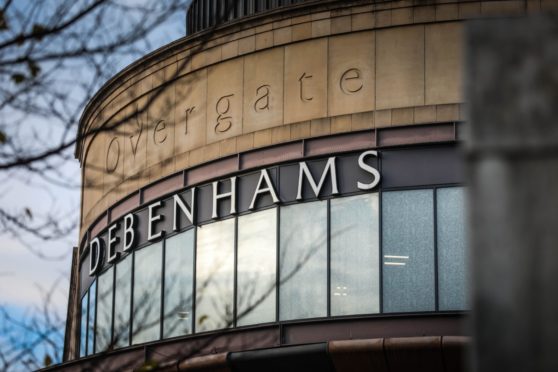Sir, – As a former Debenhams Store Director I was particularly saddened to read of its demise (Debenhams a huge loss within Courier Country, Courier, December 2).
The mighty department stores have all but gone along with many big-name multiples.
Covid has hastened the decline but is only part of the story. Lack of investment, technology and changing consumer habits have contributed to what is a perfect storm for non-food retailing.
In the meantime new investment is directed elsewhere. Amazon’s turnover in the UK this year will approach £20 billion without a single shop, ten times more than Debenhams.
Inequitable business rates and lack of investment have made high streets expensive to occupy and unattractive to visit. We used to go to the shops because we had no choice, now we do.
The days of the big bustling high street are over.
We have to accept this and create new models.
Each town or city is unique but all share the same aim, to maintain a centre of economic and social activity.
Shopping centres will inevitably be smaller but with vision they can be transformed.
Tinkering won’t do; change needs to be radical. We need to disrupt our high streets if they are to exist in future.
It may be within their remit but local authorities do not have the resources, expertise or fleetness of foot to make the change.
Traditional approaches to planning take years, some town centres are still trying to respond to changes in retailing that took place in the 1990s.
We can’t wait. Government should establish a national task force with genuine expertise and the ability to ensure action before the tumbleweed starts blowing down our high streets.
Mike Finlayson.
Colenden,
Stormontfield, Perth.
‘Blessed’ to have Nicola at the helm
Sir, – Scottish Hospitality Group reports payments due to support Scottish businesses are nearly two months overdue and the Fraser of Allander Institute has reported £1 billion of funding from Westminster to Holyrood is unaccounted for.
Yet Nicola Sturgeon is able to conjure funding for a cynically politicised bonus to NHS and care workers who have been paid throughout this viral nonsense.
Is Scotland truly blessed by her presence?
Hamish Hossick.
Strathern Road,
Broughty Ferry.
Jim is conspicuous by his absence
Sir, – Jim Crumley’s article (‘Nature is the winner as minister acts on licensed grouse shooting’, Courier, December 1) is a work of fiction.
Mr Crumley asserts that ‘the idea that grouse shooting is a financial godsend for rural communities is both an urban and rural myth’.
This is patently untrue, as evidenced by research commissioned by the Scottish Government that was published only last month.
This research found that grouse shooting generates more jobs and regional investment than any other comparable land use, while costing the taxpayer nothing.
Mr Crumley paints a highly distorted picture of what would happen if moorland managed for grouse shooting were to be ‘re-designated as nature reserves’.
He suggests ‘communities would cease to be fragile simply because they would no longer beholden to the oppressive regime of the grouse shooting industry’.
This is utterly fanciful.
The same research shows that nature reserves cost more money than grouse moors to run, with 79% of funds coming from the public purse.
They also employ far fewer people.
Mr Crumley’s disconnectedness with moorland ecology and communities is astounding.
Environment Minister, Mairi Gougeon MSP, listed a number of stakeholders who would be partaking in the consultation and development of a grouse moor licensing scheme – including the British Association for Shooting and Conservation. Mr Crumley was conspicuously absent.
Eoghan Cameron.
Chairman,
The British Association for Shooting and Conservation.










